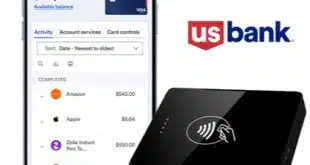MasterCard Inc. posted strong debit card growth in 2011’s fourth quarter, and the No. 2 card network’s top executive told analysts on Thursday that MasterCard is picking up some new business because of the Durbin Amendment. At the same time, however, MasterCard president and chief executive Ajay Banga said the network, which along with Visa Inc. and several big banks is embroiled in litigation over credit card interchange, won’t budge on the network transaction fees.
MasterCard reported U.S. debit card purchase volume of $104 billion in the fourth quarter, up 19% from a year earlier. U.S. debit purchase transactions grew 17.8% to 2.63 billion. The dollar-volume growth far exceeded debit’s 3.7% year-over-year growth rate in 2010’s fourth quarter.
MasterCard’s U.S. credit card metrics also showed gains, though not as big as debit’s. Purchase volume hit $134 billion, up 6.3% from $127 billion a year earlier, on 1.62 billion transactions, up 4.5%.
MasterCard and national electronic funds transfer networks that offer point-of-sale PIN debit services hope to pick up new business as a result of the new Federal Reserve rule implementing the Durbin Amendment in 2010’s Dodd-Frank Act. Durbin bans exclusive network affiliations between debit card issuers and networks, such as an issuer offering cards only with Visa Inc.’s mark for signature debit and the Visa-owned Interlink network for PIN debit. Each card must offer at least one unaffiliated network, and issuers or networks can’t restrict merchants’ transaction-routing choices.
Many observers expect this aspect of Durbin to weaken the Visa/Interlink duo’s dominance of U.S. debit since issuers must now add at least one unaffiliated brand to their cards. First Data Corp.’s Star EFT network has picked up at least 20 new issuers. Purchase, N.Y.-based MasterCard is adding debit issuers, though not as many as Star. “At this point I can tell you we have won PIN deals with a couple of major U.S. banks and have already begun to see some of those transactions,” told analysts at the company’s fourth-quarter conference call.
Banga didn’t identify the issuers but also said that Cleveland-based KeyBank is expanding its MasterCard debit agreement to include PIN debit and will do its processing on MasterCard’s Integrated Processing Solutions (IPS) debit platform. Last year, Columbus, Ohio-based Huntington Bank said it would convert its signature debit card file to MasterCard and use the IPS platform. In all of 2011, MasterCard signed debit or credit card deals with nearly 150 new issuers, Banga said, some of which were conversions from Visa Inc.
On another battlefront, MasterCard announced that it took a $495 million after-tax charge ($770 million pre-tax) in the fourth quarter as its share of a potential settlement with merchants challenging the interchange practices of Visa, MasterCard, and some of their biggest bank customers and former owners. The parties are now in mediation to settle the years-old litigation pending in U.S. District Court in Brooklyn, N.Y.
The litigation is scheduled for trial in September. MasterCard and Visa have liability-sharing agreements with the banks, with MasterCard itself on the hook for 12% of damages awarded. That implies a possible settlement of $6.4 billion on a pre-tax basis.
Banga, in addressing what he said was industry speculation about the litigation, refused to say when or how the mediation talks might conclude, or how much any settlement might ultimately cost. “I want to make clear that we would not agree to any significant or long-term reduction in MasterCard’s credit interchange rates as part of any settlement,” he said. (The litigation is the subject of Digital Transactions magazine’s February cover story.)
For all of 2011, MasterCard posted U.S. debit purchase volume of $393 billion, up 17.9% from 2010’s $333 billion, on 9.85 billion transactions, an increase of 16.4% from 2010’s 8.46 billion. U.S. credit purchases came in at $508 billion, up 6.1% from $479 billion, on 6.07 billion transactions, 3.6% higher than 2010’s 5.85 billion.





